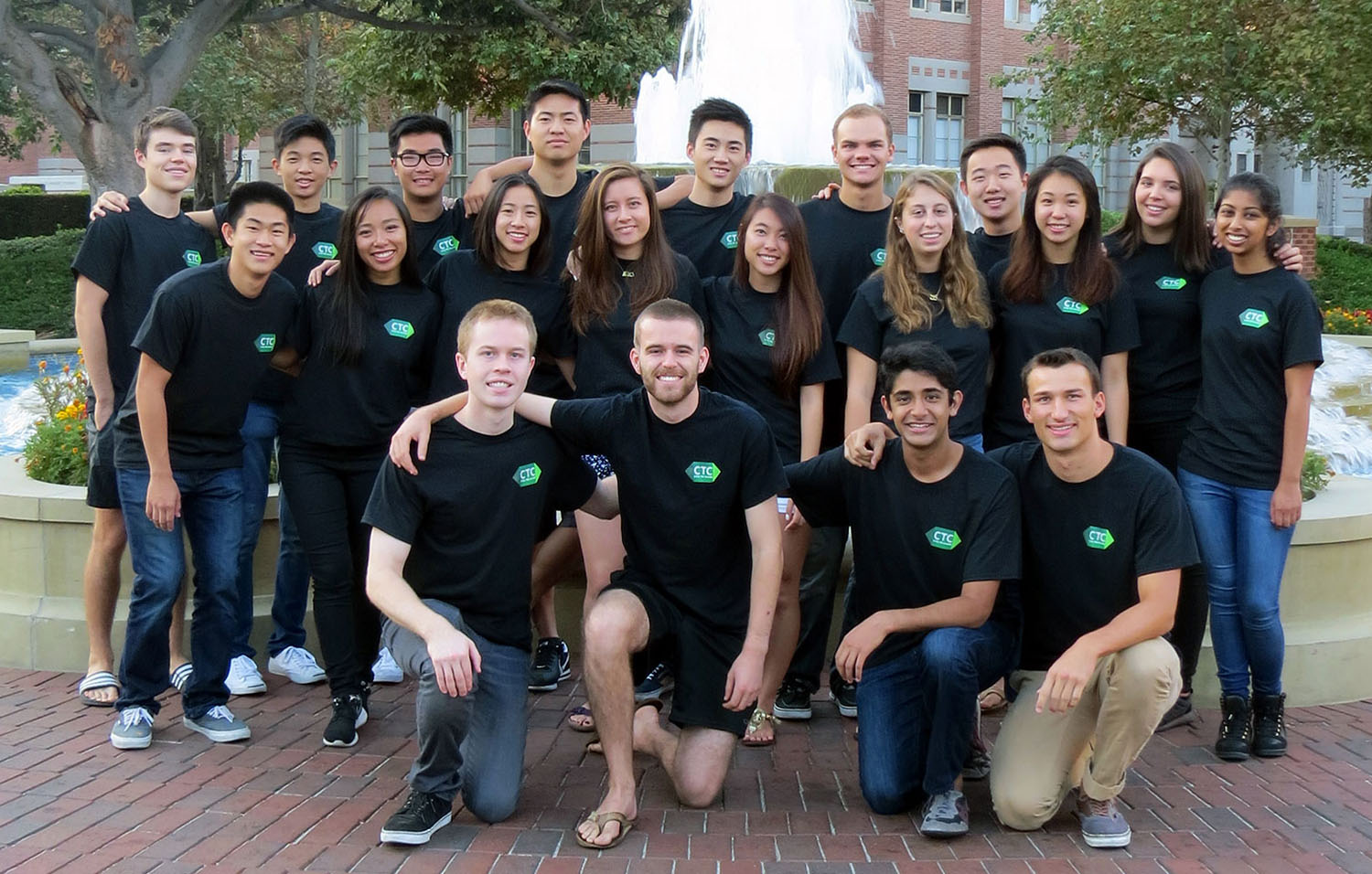Code the Change develops software for nonprofits

Chip in · Code the Change, an organization that provides free software development to nonprofits in Los Angeles, is currently working with Good Shepard to make an app that will help the nonprofit’s operations, and Neighborhood Council Sustainability Alliance to make a platform for better communication. – Photo courtesy of Bernard Xie
In January 2015, two USC computer science majors, Liam Duffy and Bernard Xie, wanted to utilize their digital skills for good. After putting together a team, they’ve been able to impact the community, and nonprofits, around them and are continuing their efforts with two new projects.
Duffy and Bernard are the founders of Code the Change, a USC student organization dedicated to providing free software development to nonprofits in the Los Angeles area.
CTC’s first upcoming project is in partnership with Good Shepherd, an organization of shelters for domestic violence victims in L.A. CTC is working on a digital platform that would expedite the process of placing victims of domestic violence in shelters that fit their needs.
“Let’s say someone gets attacked by their significant other and calls 911. The police would come, pick them up, take them to the police station, and from the station they would call each shelter and check things like availability and credentials,” CTC project manager Kevin Kim said. “What our app is going to do [is] allow the police officer to automatically find a shelter that fits the victim’s criteria and get directions immediately. It takes the victimization out of the process.”
The second project focuses on creating a digital communication platform for the Neighborhood Council Sustainability Alliance.
“We’re empowering the neighborhood councils to have an online community where they can communicate better with each other,” tech lead Brian Kim said. “They will also be able to reach out to the public with environmental and drought-related initiatives.”
The team plans on completing, or at least testing, these two projects by the end of the semester. They work on two week planning and goal-based shifts, with project managers to steer the process along.
These are not CTC’s first projects. Last semester they worked with an organization called College Knowledge, which was started by USC graduate students, to develop a web application which would allow for low-income high school students in the area to easily access free college resources.
“The idea behind this is hacking for good or hacking for impact,” Xie said. “We are an interdisciplinary student org that consists of programmers, designers, project managers, engineering majors and business majors who develop technical projects with nonprofits who would not have the means to do it otherwise.”
Kim said he joined CTC as a project manager to supplement a passion for volunteerism he could not satisfy in the corporate world.
“I have a good amount of experience with project management stuff from internships,” Kim said. “I had a lot of fun, and I learned a lot in the corporate environment. But one thing I really wanted to do during my time as a Trojan is to give back.”
Cofounder Duffy stumbled upon the Stanford CTC chapter and its founder Sam King last fall.
Duffy talked with King on Skype, and King encouraged him to reach out to the best people to create a team and start canvassing nonprofits in the area about their digital needs. The result was an original team of about seven or eight, and at least 10 to 15 applications from nonprofits.
According to Duffy, however, nonprofits are not the only ones who have benefitted from CTC’s work.
“We are hoping to provide a space where, as a community, we can all learn the most prevalent technologies, and build skills for the real world on our own,” Duffy said. “The culture and community of our organization is unique. These are really good people and really smart people.”
The work is challenging and rewarding. To most in the group, the results are tangible.
“Pretty much all these projects we pick up or think about picking up have no shot of coming to fruition without somebody trying,” CTC tech lead David Bell said. “To be able to be that person or that group that contributes the time that really makes the difference is the best part.”
